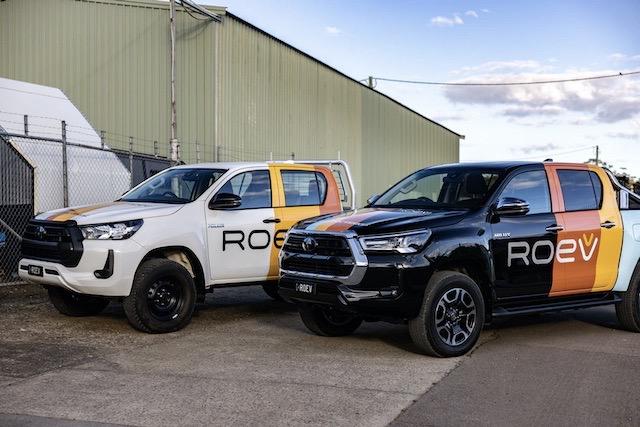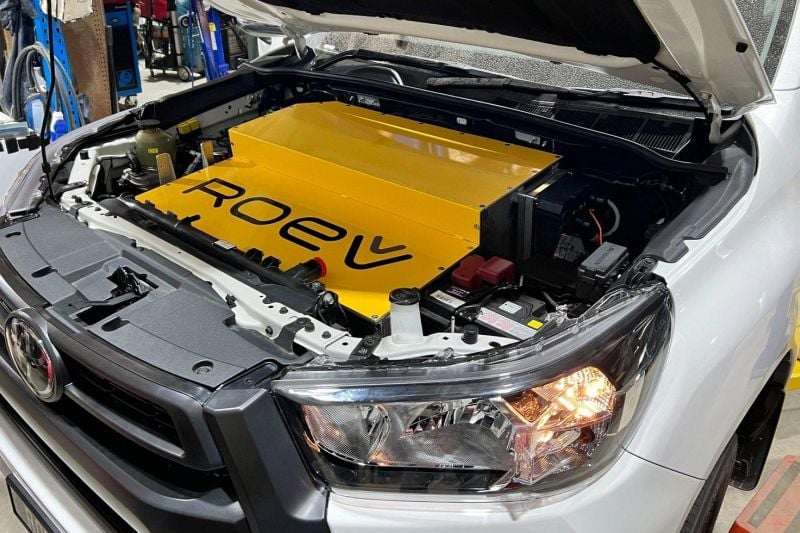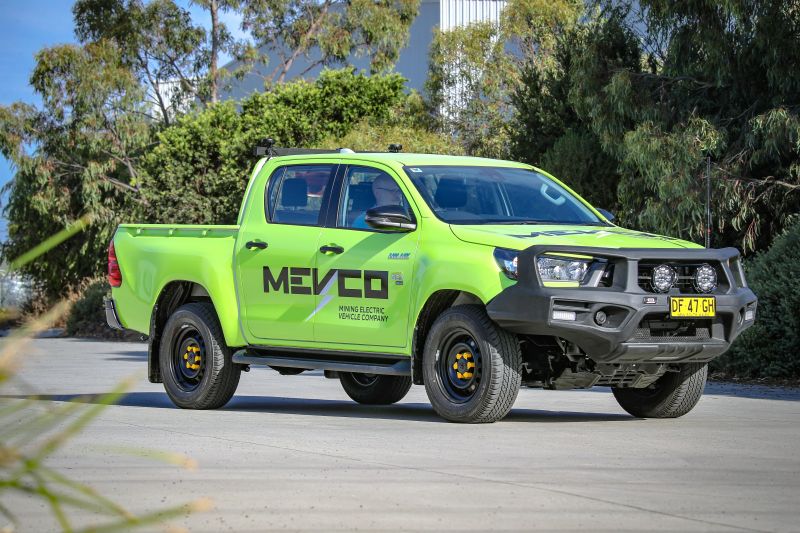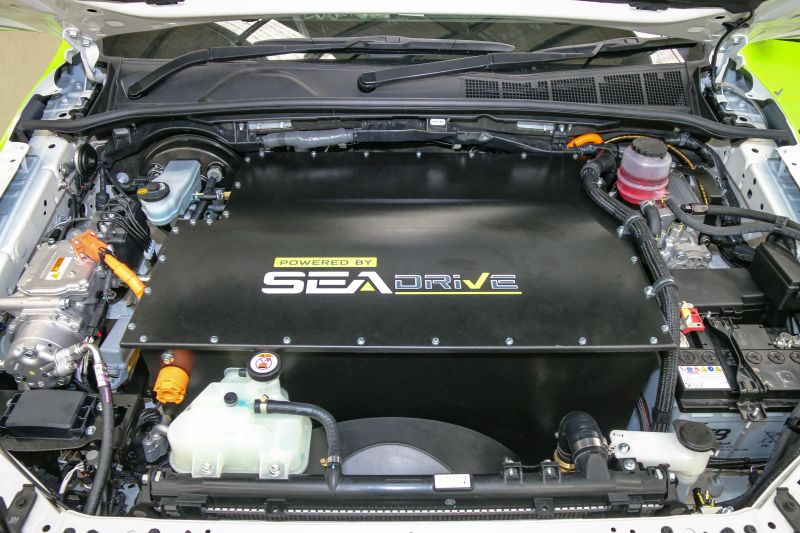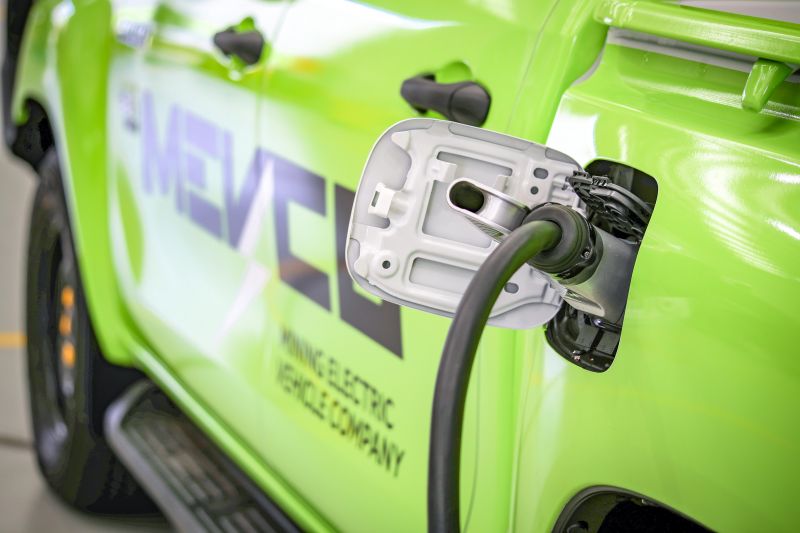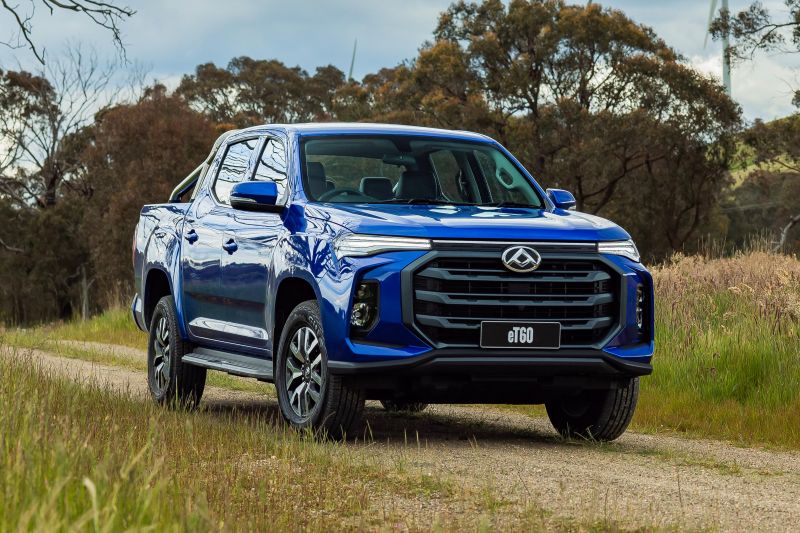None of Australia’s top-selling utes include with an electrical choice from the manufacturing facility, regardless of rising demand for battery-powered workhorses from the mining sector particularly.
This has prompted the creation a minimum of two Australian conversion firms pledging to transform hundreds of present Toyota HiLux diesels into electrical vehicles – in lieu of such motion from the model that initially builds them.
One among these firms known as Roev, based by Atlassian executives Noah Wasmer, Paul Slade and Robert Dietz. It plans to transform greater than 1000 diesel HiLuxes to electrical in its first 12 months of manufacturing, with autos slated to be accessible from February 2024.
“Greater than half” of this allocation is ready to be snapped up by Perth-based electrical automobile leasing, rental and subscription firm CarBon, “to provide industrial fleet operators desirous to transition to zero emissions transport”.
CarBon not too long ago mentioned a pending pilot program in Western Australia’s northwest – residence to the mineral-rich, scorching scorching Pilbara – the place it says “a number of assets firms” will implement the autos into their operations.
“There may be big demand for gentle industrial EVs in Australia, significantly within the fleet market the place companies are racing to decarbonise,” stated ROEV co-founder Mr Wasmer.
“Electrical conversions present a further choice to speed up this transition and we’ve been working very carefully with fleets to make sure the autos out-perform expectations,” he stated.
The electrified Roev HiLuxes lose the diesel engine and working gear and get a 64kWh battery with 240km of vary, or a 96kWh battery with 360km vary, may be charged at 80kW DC or 11kW AC, have V2L functionality and regenerative braking, and both 4×2 or 4×4.
The Roev conversions are anticipated to price between $47,990 and $57,990 on prime of the donor automobile worth – although it factors out many of those donor HiLuxes will likely be present autos which have already depreciated and been used.
The corporate solely converts donor HiLuxes with five-star ANCAP rankings and says its manufacturing operation is ISO 9001 grievance and validated to ADR protocols.
“Organisations throughout the board are going through rising strain to transition their gentle industrial fleets to fulfill ESG targets, however till now there hasn’t been a 4×4 electrical ute accessible,” stated CarBon founder and CEO Scott Gillespie.
“… The HiLux is Australia’s best-selling ute and each transformed Roev 4×4 Electrical HiLux has the potential to cut back CO2 emissions by over 100 tonnes by means of its usable lifespan,” he added.
The partnership between Roev and CarBon to provide the mining sector with electrical variations of their most popular workhorse appears slightly like the same venture from one other Australian-based firm referred to as Mevco.
Mevco earlier this yr detailed a venture to show 8500 new or near-new HiLux and LandCruiser diesels into zero-tailpipe-emissions electrical vehicles over the following 5 years.
The close to billion-dollar deal is designed to capitalise on demand from the assets sector for battery-powered workhorses that’ll do the job in a few of the world’s hardest circumstances.
“[We have] 5000 on order proper now from the mining house, from one week in Perth doing drives with 44 mining firms. We’ve stopped taking orders,” Mr Cahir informed CarExpert earlier in 2023.
This contains massive mining firms specializing in lithium and nickel for export into EV battery materials. The primary consumer is Mineral Assets, which operates two of the world’s greatest hard-rock lithium mines.
MEVCO isn’t liable for the engineering, however has as a substitute performed a take care of Australian-based (and globally famend) electrical industrial automobile converter SEA Electrical to suit its proprietary electrical drivetrain.
SEA already creates electrical Hino vans and not too long ago inked a deal with iconic truck-maker Mack. It even ‘re-powers’ iconic yellow American college buses for that market. Its EV driveline is transferrable and the battery may be repurposed as stationary storage in a while, paired to on-site photo voltaic arrays.
Further growth work on the MEVCO HiLux EV is being performed by GB Auto Group based mostly in regional New South Wales to verify the EV driveline works as supposed.
Whereas discovering hundreds of donor HiLuxes isn’t straightforward, working within the venture’s favour is the actual fact many mining firms have a financial institution of autos on order. MEVCO says it’s shopping for up as many as it will possibly from sellers, as long as they’re below 12 months outdated.
One take-away from all that is clear: Whereas Australia is caught within the gradual lane relating to proliferation of EV workhorses, the non-public sector is plugging the hole.
Proper now the one electrical ute on sale from its OEM is the 4×2 LDV eT60, which prices an eyebrow-raising $92,990 earlier than on-road prices.
“There may be an undoubted urge for food for industrial utility EVs,” claims LDV’s basic supervisor Dinesh Chinnappa.
“These Australian companies know the eT60 isn’t going to cross Nullarbor – however that its 330km vary is greater than ample for his or her on a regular basis necessities.
“However additionally they know authorities EV coverage and EV infrastructure is on the transfer and so they wish to be forward of the transition. And the LDV eT60, Australia’s first electrical ute, is right here to assist.”
Whereas there is no such thing as a factory-original HiLux EV, Toyota Australia has confirmed 48-volt mild-hybrid expertise is coming to the HiLux diesel within the first half of 2024, flagging 10 per cent higher gas effectivity.
MORE: Mining firms are determined for electrical Toyota HiLuxes
MORE: Roev’s electrical HiLux and Ranger conversions priced and detailed

